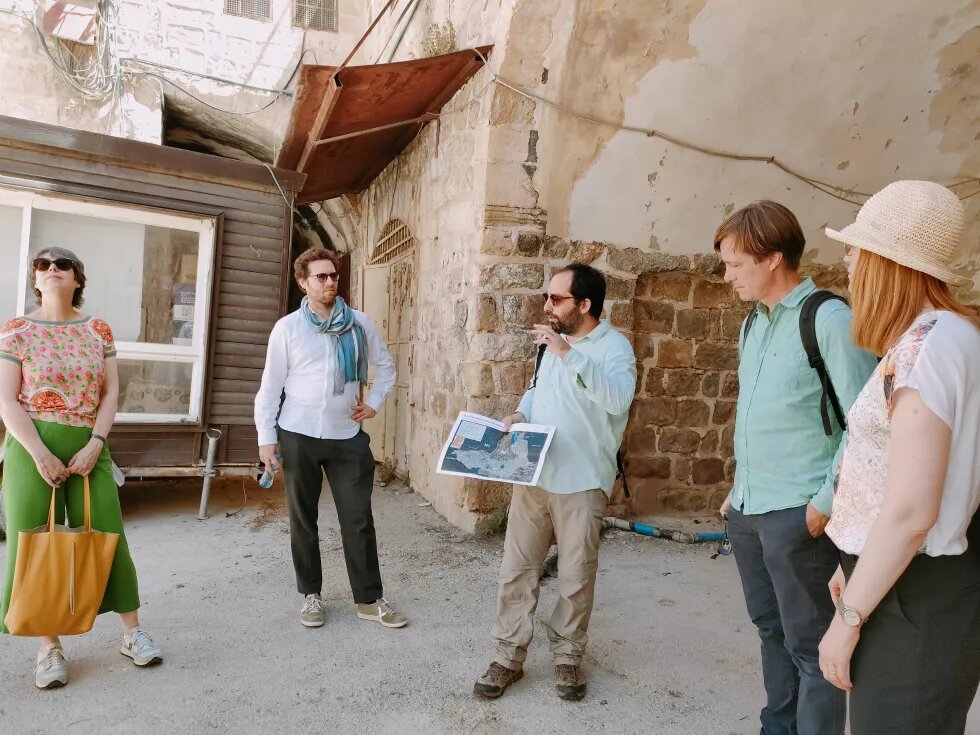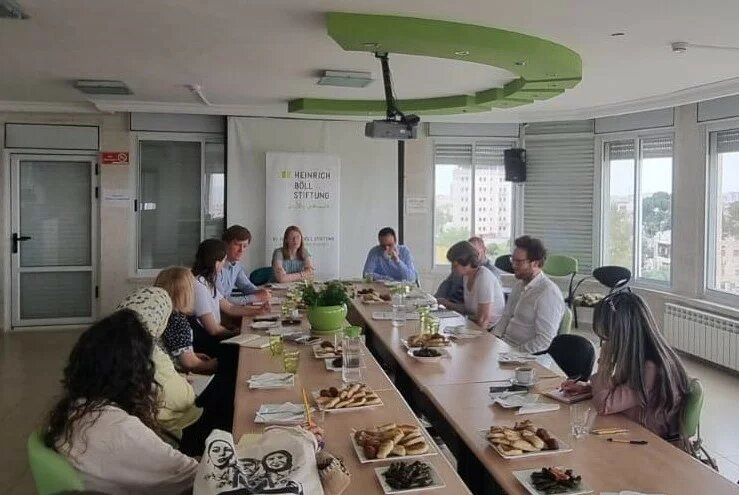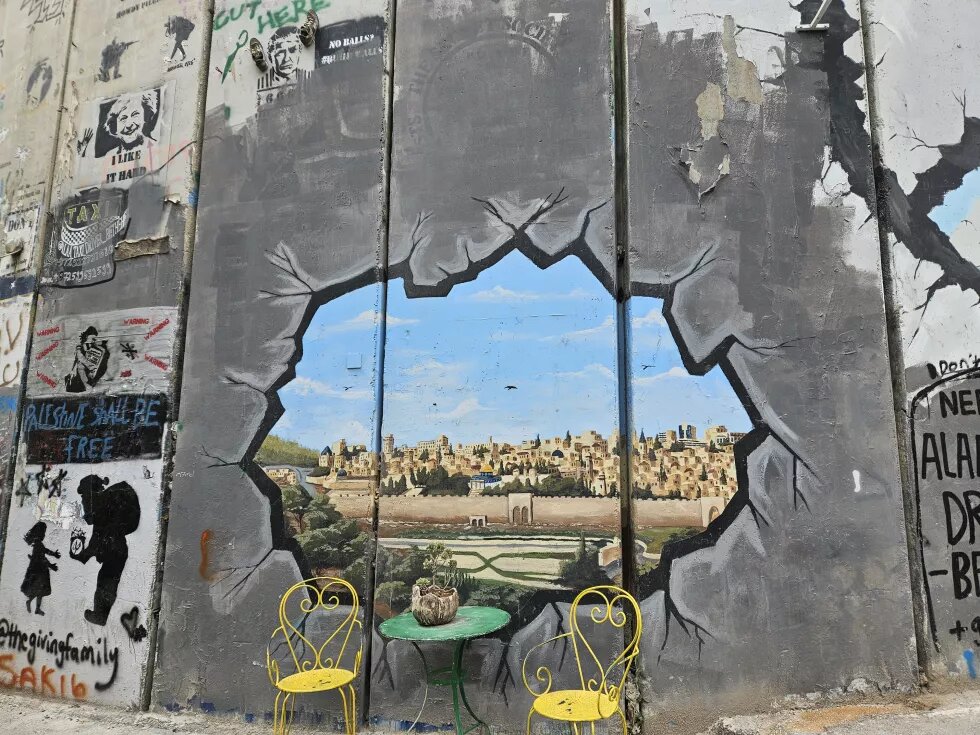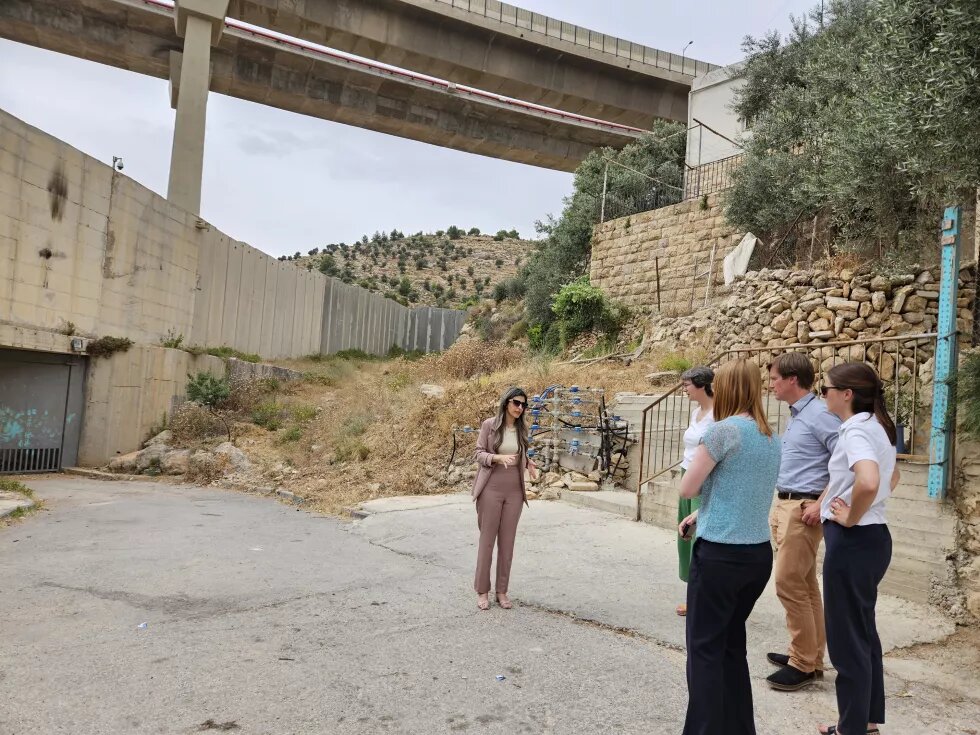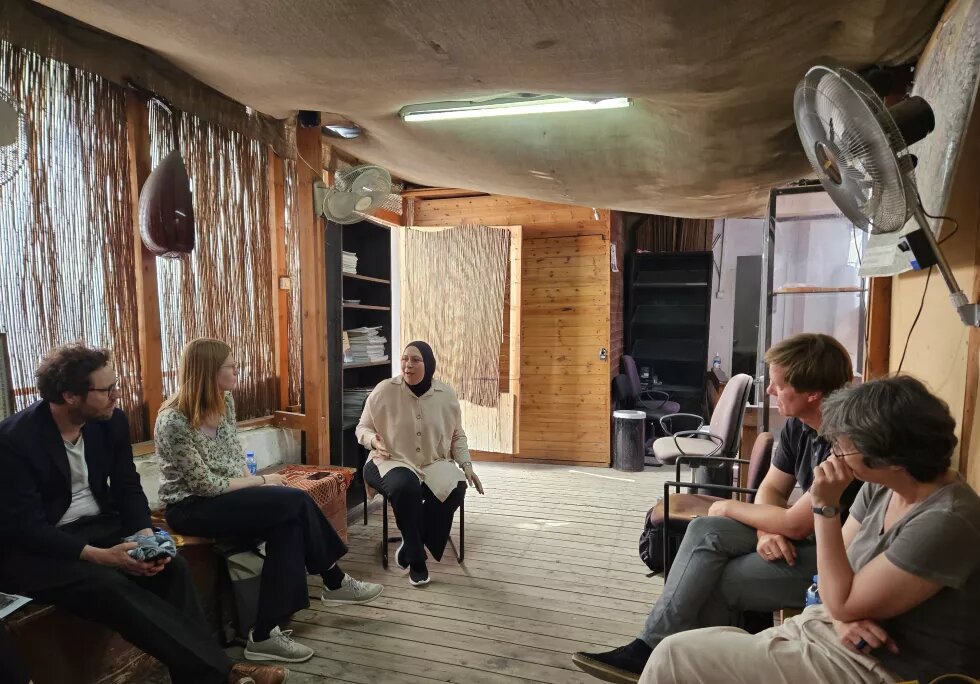
The visiting delegation from the headquarters of the Heinrich Böll Foundation to Palestine consisted of its two new Co-Presidents, Dr. Imme Scholz and Jan Philipp Albrecht, Laura Endt – Press Spokesperson International Affairs and Bauke Baumann - Senior Program Officer for the Middle East. The three-day visit started on 06 June in East Jerusalem with a political tour led by hbs’ partner organizations the Jerusalem Center for Human Rights (JCHR) and Madaa Creative Center (MCC). It included visits to Sheikh Jarrah, Silwan and Issawiyyeh, where the sociopolitical and human rights situation in Jerusalem was presented. The briefings focused on the Israeli eviction policies, settlement expansion and settler projects, such as the Cable Car project, the City Center project, and “Area E1”. The tour also included briefings by partner organizations on the situation of women and children in Jerusalem, child detention, house arrest, women’s role and their social and political empowerment.
The political tour was followed by a roundtable dinner with representatives from hbs partner organizations and experts. The roundtable tackled various topics such as the current political and human rights situation and recent developments in East Jerusalem, the challenges and restrictions facing partner organizations in their work in Jerusalem, and the impact of the latest Israeli government on the legal and human rights situation of Jerusalemites. The day concluded with a short walking night tour in Jerusalem and its Old City.
The second day commenced with a political tour in Hebron with the Palestinian activist movement Youth Against Settlements and Israeli human rights organization Breaking the Silence. A briefing was provided on the way to Hebron on the de jure and de facto annexation, settlement expansion in the south of the West Bank, and Israeli military presence and its manifestations in the West Bank. In Hebron, a walking tour in Shuhada Street and the Old City provided insights into the recent development in the city, with focus on the post-Oslo period. It also provided an understanding of the prevailing human rights situation in terms of the violations, restrictions and discriminatory policies that Palestinians are subjected to in the city. Some of the issues addressed were house raids, closures, forcible evictions, restrictions of movement and settler attacks with support of the Israeli army.
Following the tour, the delegation travelled to Ramallah for a briefing with the German Representative Office on the latest development in the oPt from a German perspective, the relations with the Palestinian Authority (PA) and German support to Palestinian civil society. The day concluded with a dinner with hbs’ Ramallah team, where the delegation heard from team members about the various challenges and achievements of the office.
The third and final day of the visit started with a briefing by the Norwegian Refugee Council on the impact of Israel’s proposed judicial overhaul on Palestinians. It was followed by a roundtable with partner organizations and experts focusing on the current political, human rights and environmental situation in the oPt in light of recent developments. The discussion touched upon several topics such as the deteriorating human rights situation environmental violations, the challenges facing partners in their work, the shrinking space for Palestinian civil society and the German and international discourse on Palestine.
The visit was concluded with a political tour in Bethlehem governorate with hbs’ partner organization Balasan Initiative for Human Rights. It included a short walking tour and a briefing on the Israeli “separation wall”, its impact on Palestinians and the 2004 advisory opinion of the International Court of Justice on it. This was followed by a short tour in Aida Refugee Camp with a briefing on the history of the camp, its sociopolitical developments and violations by the occupation over the years. The second part of the tour focused on the Israeli human rights violations against Palestinian Christians, manifested in land confiscation and settlement expansion, forcing the majority to leave the country. This included a visit to Cremisan Valley, one of the two remaining green areas in the Bethlehem governorate, where privately-owned Palestinian land is confiscated and centuries-old olive trees are uprooted for the expansion of nearby illegal Israeli settlements. This not only hinders the natural growth of Palestinian communities, but also cuts off many families from their lands that are a source of livelihood.
The delegation then visited Bir Oneh, a part of Beit Jala that was annexed to Jerusalem and almost cut off from Bethlehem. The area has been turned into an enclave, surrounded by a wall and a closed iron gate that separates the residents from their lands. Residents of Bir Oneh are subjected to daily violations in the form of house demolitions and stop construction orders. The tour concluded with a visit to Al-Makhrour Valley, the other remaining green area in Bethlehem governorate, which has been the subject of Israeli land annexation interests for several years and is targeted by Israeli policies of land confiscation and settlement expansion that constitute grave violations under international law.
